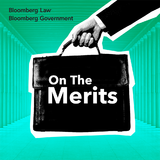Trump’s Big Law Deals Spell Out Broad Enforcement Terms
President Donald Trump’s deal with four law firms contains no specifics about how they’re going to make good on their $500 million pledge of free legal services, but a separate agreement with the US Equal Employment Opportunity Commission requires ongoing reporting about their compliance.









